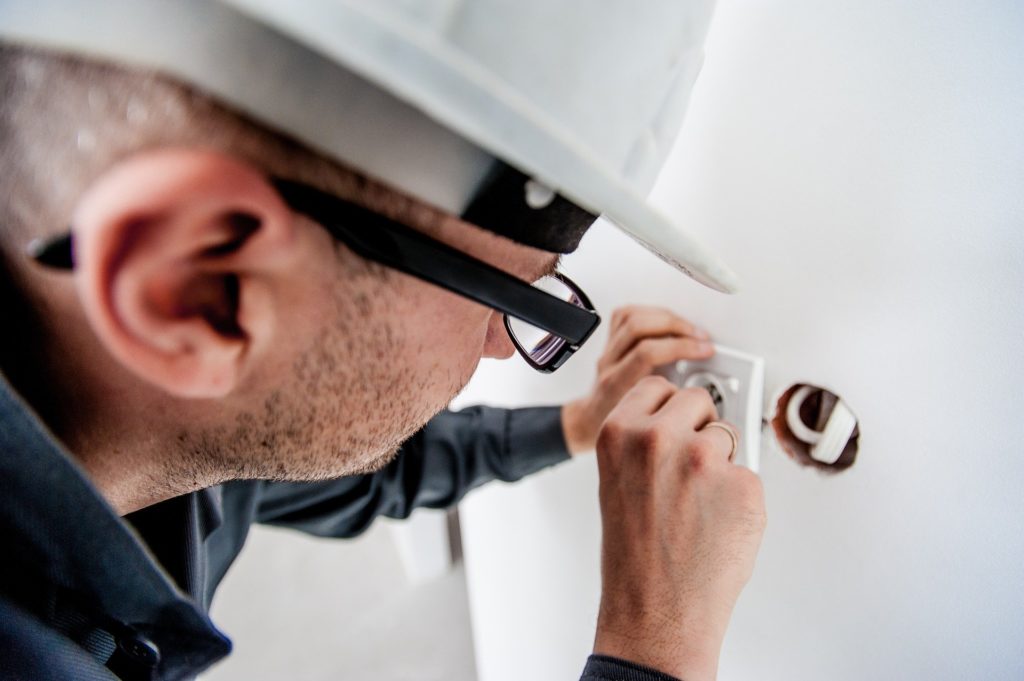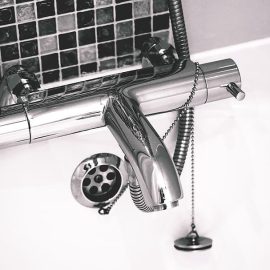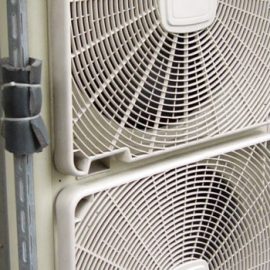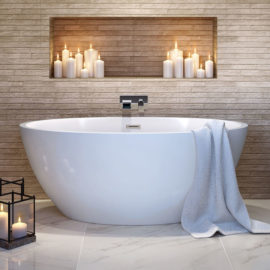
We possibly could not ever imagine living without the continuous supply of electricity such is our dependence on electrical energy. From providing lighting, cooling, and heating to powering all of our electrical appliances, electricity has become part and parcel of our daily lives. However, we should not forget that if it is used incorrectly, it can injure or even put human lives in danger.
Indoors

Our homes totally rely on electric energy to supply us with food, light, entertainment, heating, and cooling. A lot of accidents involving electricity happen in homes and the major areas of worry are mentioned below.
Electrical Appliances
Our homes are packed with electrical appliances – from microwave and toaster to refrigerator and television set, but there are safeguards that need to be adhered to prevent the danger arising from electrocution.
Ensure appliances like computer monitors and television sets that produce heat have sufficient inches of clearance all around for good air circulation.
Refrain from pushing anything into an appliance like the toaster.
Prior to cleaning appliances, switch them off and unplug.
Switch off appliances like ovens, air conditioners, heaters etc. while leaving your home.
With wet hands, never touch any electrical appliance.
Do not fold an electric blanket in order to store it because the wires may crack or bend.
Check the appliances at regular intervals for defective or broken plugs, cords and switches and change them or get them repaired at once.
In case, you discard them, ensure that they cannot be used by anyone else.
Lights
Although lights seem to be gentle, they are quite capable of inducing electrocution. While handling lights of any type, the following tips should be adhered to remain safe:
To avoid overheating, always use a light bulb with the right wattage.
Prior to changing a light bulb, always switch off the light.
Refrain from using wet hands to change a light bulb or to touch a light switch.
Get the plates detached by a certified electrician in case tiling is being performed around the light fittings or switches.
Do not take out the plate around the light while painting a ceiling instead cover it.
Cords
It is through cords that we are able to connect appliances to the power supply and this also needs to be handled with good care. Following are the safety tips for electrical cords:
Completely loosen up the cords prior to use to avoid overheating.
At all times, take out a cord from the wall at the plug because pulling on the cord itself is not safe.
When using extension cords for outside use, make sure that the extension cords are rated for outdoor use and ensure the connections are shielded from the weather.
Yes, extension cords must be used as a temporary solution only and ought to be placed around the walls to avert tripping and it should not be placed under the rugs or carpet.

Wet Areas
Electricity and water do not mix and so in wet areas extra caution should be observed, which include the following:
While working in wet areas such as the laundry, wear rubber-soled footwear.
In the bathroom, disconnect and safely store electric shavers and hair dryers every time they are not in use.
In the bathroom, avoid using portable electric heaters.
Refrain from using extension cords in wet areas unless intentionally designed for such use.
To avoid splashing, keep stereos well away from the swimming pools and spas.
Power Boards & Adapters
We tend to use so many appliances in our day to day lives that a single power outlet is often not adequate; however, care should be taken while using double power boards or adapters.
Do not piggy-back a double adapter because it can induce an electrical fire.
Ensure the power board has the correct amperage to support the appliances that are plugged into it; however, never overload a power board with too many appliances.
It is recommended to use power boards always with inbuilt safety devices like overload switches.
Inspect power boards at regular intervals for signs of discolouration or scorching and change at once if detected.
Make sure power boards have sufficient ventilation to shield from overheating.
It is recommended to switch off the power boards from the wall outlet always if they are not in use for any time duration.
Outdoors
Electricity can be a dangerous outside the home too and care should be taken here too. Following are the major areas of concern.
Hidden/Concealed Wires
Wires that you cannot see at all pose a greater danger than overhead power lines. In such situations, the following tips should be observed.
You should call 1100 prior to digging any type of hole or ditch in your backyard, as there may be underground power cables passing through.
Try to find out where the electrical wires are before drilling into the walls, especially around the power points and light switches.
Power lines
Overhead power lines hold enormous voltages, thus special care requires to be taken around them. Adhere to below-mentioned safety tips around the power lines.
Make sure there are no overhead power lines in the area before installing an antenna, raising a ladder, or putting up a boat mast.
In the area surrounding the powerlines, the tress should be trimmed by professionals and preferably should plant low-growing vegetation in such areas.
Ensure that near overhead power lines, your children do not climb trees or fly kites.
Suppose you are on your roof for whatever reason, just remain away from the power lines that connect your home to the grid.
Prevention
Prevention is better than cure goes the saying! Shield yourself from all the potential electrical accidents by following these simple rules:
It is recommended to use the services of a certified electrician always.
Do not ever try for DIY electrical work; not only it is illegal but also it can lead to electrocution or fires.
It is recommended to change all old ceramic wire-type fuses with switch-type circuit breakers.
To detect possible risks, get a licensed electrician to perform an electrical safety audit of your home or business.
Install safety switches or RCDs (Residual Current Devices). They will cut power flow in one thousandth of a second during an emergency, which aids in preventing electrocution.
To make sure safety switches are in good working condition, test them every 3 months.
Although electricity has the potential to kill, we can live safely using it provided we apply common sense and also teach our kids to do the same. Electricity can continue to be a great assistant in all stages of our lives.
If you need the services of a professional electrician in Mississauga, ON, then get in touch with them. Lion Electric is such a company that handles all residential, commercial, and industrial electrical works.



